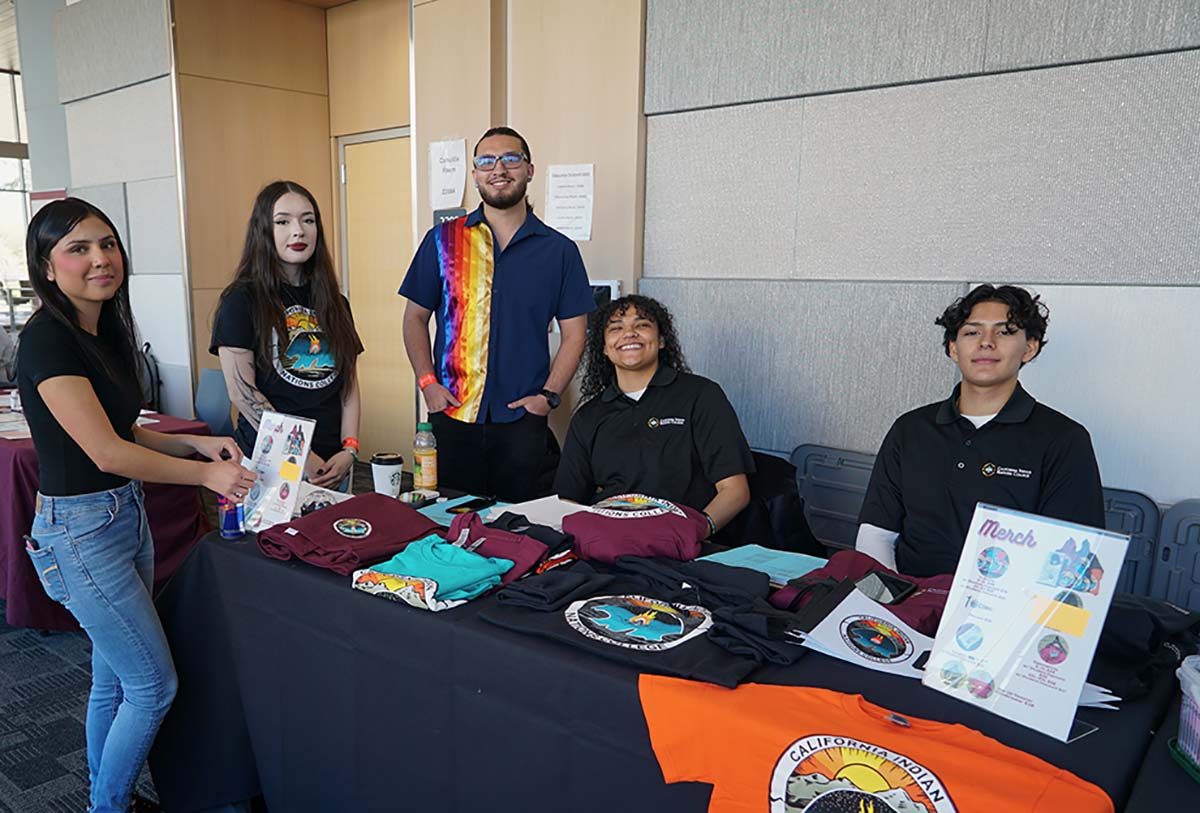
- Details
- By California Indian Nations College
Palm Desert, California — California Indian Nations College (CINC), the only accredited tribal college in California in decades, is experiencing remarkable growth while making a profound impact on Indigenous education. Since its founding, CINC has served 506 students, providing culturally responsive higher education that empowers Native communities and fosters leadership, academic success, and cultural preservation.
Enrollment continues to climb, reaching 141 students in Fall 2024 and 151 students in Spring 2025, with 82.3% of Spring 2025 students identifying as American Indian or Alaska Native. This “record-breaking enrollment” underscores the demand for a college that centers Indigenous identity while offering rigorous academic programs tailored to first-generation and non-traditional learners.
A Diverse and Inclusive Student Body
CINC serves as an educational home for Indigenous students and allies, offering a unique environment where culture, identity, and academic rigor intersect. In Spring 2025, the student population is predominantly American Indian/Alaska Native (82.3%), with smaller representations from Hispanic or Latino (~10%), two or more races (~5%), and White (~1%).
The college is a beacon for first-generation students: 76.4% of CINC students are the first in their family to attend college. With an average age of 34, CINC accommodates working adults, parents, and other non-traditional learners, demonstrating flexibility and a commitment to serving students with diverse life circumstances.
Supporting access and equity, 100% of undergraduates receive financial aid, ensuring that underserved communities have the opportunity to pursue higher education. Gender equity is also central to the college’s mission: 83% of degrees awarded last year went to women, highlighting CINC’s role in fostering Indigenous female leadership.
Academic Success and Cultural Programming
CINC students achieve meaningful academic outcomes. The college maintains a course success rate of 72.8%, reflecting effective teaching, strong student support, and culturally relevant curricula. Beyond academics, the college is deeply committed to cultural programming. Through the Path Breakers Program, students engage with Indigenous languages such as Cahuilla, Luiseño, and Kumeyaay, fostering both linguistic and cultural preservation.
CINC also hosts initiatives like the Indigenous Education Summit, which connects students with tribal leaders, scholars, and educators to address access, equity, and the evolving role of tribal colleges. These programs cultivate leadership, cultural identity, and community engagement, ensuring that students gain both academic knowledge and cultural grounding.
Accreditation and Institutional Growth
CINC recently achieved “Eligibility to Apply for Candidacy” status in its accreditation journey, a significant milestone that signals national recognition and opens doors to federal funding, academic partnerships, and enhanced student opportunities. This step cements CINC’s position as a leader in Indigenous higher education and underscores its commitment to academic excellence.
With a recent $10 million state grant, CINC is poised to expand faculty, develop technology programs, enhance student services, and offer more robust curricula rooted in Indigenous worldviews. This investment not only supports student growth but also strengthens the college’s long-term sustainability, enabling it to serve future generations of Native students.
Your Support Can Make a Difference
CINC’s growth and impact are fueled by community support. This Giving Tuesday, December 2, 2025, you can help ensure that Native students have access to education, culture, and opportunity by choosing to “Give Native.” Your donation supports representation, academic excellence, and cultural sovereignty. Visit Giving Tuesday - CINCollege to contribute and help build a brighter, more inclusive future for Native American students.
For more information, contact California Indian Nations College at 85-385 Airport Boulevard, Palm Desert, CA 92211, by phone at (760) 778-2800, or by email at [email protected]. Additional information is available on the college’s website at www.cincollege.org.
Help us defend tribal sovereignty.
At Native News Online, our mission is rooted in telling the stories that strengthen sovereignty and uplift Indigenous voices — not just at year’s end, but every single day.
Because of your generosity last year, we were able to keep our reporters on the ground in tribal communities, at national gatherings and in the halls of Congress — covering the issues that matter most to Indian Country: sovereignty, culture, education, health and economic opportunity.
That support sustained us through a tough year in 2025. Now, as we look to the year ahead, we need your help right now to ensure warrior journalism remains strong — reporting that defends tribal sovereignty, amplifies Native truth, and holds power accountable.
 The stakes couldn't be higher. Your support keeps Native voices heard, Native stories told and Native sovereignty defended.
The stakes couldn't be higher. Your support keeps Native voices heard, Native stories told and Native sovereignty defended.
Stand with Warrior Journalism today.
Levi Rickert (Potawatomi), Editor & Publisher
